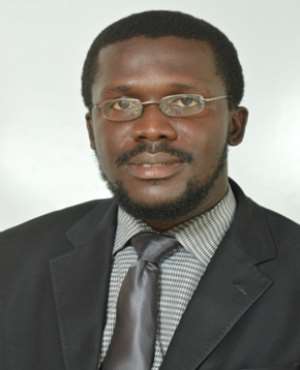
If only the elite in African would seek their wealth in the private sector, Africa would produce a better economic report.In Africa, politics remains the gateway to fabulous wealth. Most of the richest persons in Africa are heads of state and ministers. As such there is always a ferocious competition for the Presidency, Ministerial positions and Public sector employment competition which often degenerate into civil strife and political instability.
“Unless things improve, it will take sub-Saharan Africa until 2129 to achieve universal primary education, until 2147 to halve extreme poverty and 2165 to cut child mortality” (USA Financial Time, July 9, 2000, P.1)
Any time crises erupt in Africa, the first instinctive reaction of leaders is to look for a foreign scapegoat or start a web of conspiracy theories. “Africa has always been the victim of hostile external forces”, the leaders would claim. Blaming foreigners for the horrendous multiplicity of crises that have befallen the continent has been the indelible fruit of Africa leaders.
Unwilling to accept responsibility for their own disastrous failures, their natural propensity is to look outside Africa for solutions even for the problems that they themselves create.
World Bank involvement in Africa's development span more than three decades, providing over $50 billion to fund various project and programmes in particular Structural Adjustment Programmes(SAP) have failed spectacularly to alleviate poverty on the continent.
At the initial stages, banks lending to Africa were dolling the money out based on project-specific-financing and infrastructural development (Roads, Dams, Telecommunications and other public goods with large externalities.) as well as various sectorial projects in agriculture, healthcare and industry. However, ample evidence suggests that projects finance by the World Bank have performed poorly. Infrastructure has crumbled in much of Africa for lack of maintenance or destroyed by on-going civil wars.
Further, the state-owned enterprises financed by the World Bank and the multi-lateral development banks did not live up to expectation. In many cases, they were poorly conceived, hastily constructed and consequently inefficient and wasteful.
With the emergence of serious economic crises in the beginning of the 1980s a policy shift to adjustment lending “occurred with the primary objective of restructuring “African economies away from state control or domination towards private sector or more market-oriented economy.
Structural adjustment was designed to rationalize a bloated African state sector where government expenditures have careened out of control and given narrow tax bases, have resulted in massive budget deficits. Unfortunately, the banks often make the situation worse.
Most Africa economies are characterized by two sectors; the modern sector which is the government and operated by the elite, and the traditional sector which is the abode of the African poor.
Evidence suggests that the modern sector is not reformable. Given a political system that based on patronage system and governments run by uniform bandits, the commitment to reform it almost non-existent as genuine economic reform would be political suicidal. The result according to Professor Ayittey, is a “reform charade” where reforming governments take one step forward and three steps backward.
It is astonishing that, after decade of involvement in Africa, the bank has not caught on this “ribald chicanery” and allows itself to be doped time and again by crooked African government” as said by Professor Ayittey in his presentation of Blame Game.
The time has come, such that; people who aspire to lead government institution should be assessed on years of experience in management practice in the private sector, with organizations they have manage, established or acted as executive directors speak for itself for the testimony of competency of candidate applying for Presidential, ministerial and high offices in the Public sector to lead in policy formulation. Then and only we could achieve positive economic report for Africa.
Tweneboah Senzu PhD. BGi.
Bastiat Ghana Institute
[email protected]




 Dr. Wiafe Akenteng: Over 3,000 cured of kidney disease by award-winning Ghanaian...
Dr. Wiafe Akenteng: Over 3,000 cured of kidney disease by award-winning Ghanaian...
 Do I have to apologise for doing my security work? I won’t – Simon Osei-Mensah t...
Do I have to apologise for doing my security work? I won’t – Simon Osei-Mensah t...
 Railway Minister Peter Amewu loses 94-year-old mother
Railway Minister Peter Amewu loses 94-year-old mother
 Prestea and Bogoso mines: Complete payment of outstanding salaries not later tha...
Prestea and Bogoso mines: Complete payment of outstanding salaries not later tha...
 NDC postpones Prof. Opoku-Agyemang entry tour to May
NDC postpones Prof. Opoku-Agyemang entry tour to May
 All my businesses have collapsed under Akufo-Addo — NDC Central regional chair
All my businesses have collapsed under Akufo-Addo — NDC Central regional chair
 Military, Prison Officers clash in Bawku, three injured
Military, Prison Officers clash in Bawku, three injured
 GRA-SML contract: MFWA files RTI request demanding KPMG report
GRA-SML contract: MFWA files RTI request demanding KPMG report
 Court threatens to call second accused to testify if NDC's Ofosu Ampofo fails to...
Court threatens to call second accused to testify if NDC's Ofosu Ampofo fails to...
 Family accuses hospital of medical negligence, extortion in death of 17-year-old...
Family accuses hospital of medical negligence, extortion in death of 17-year-old...
